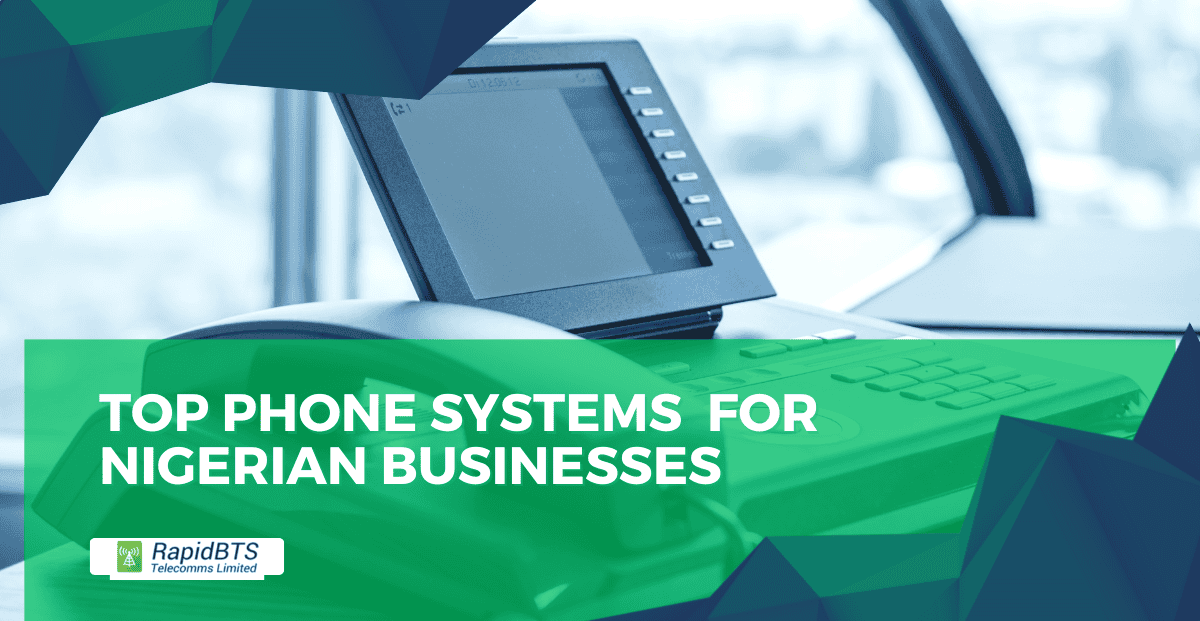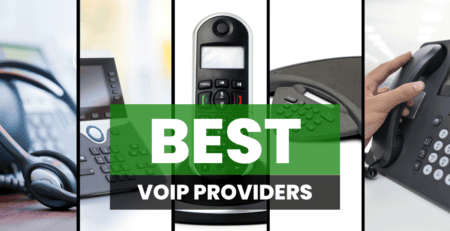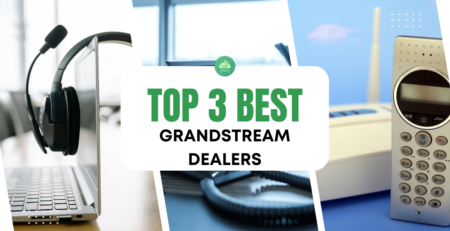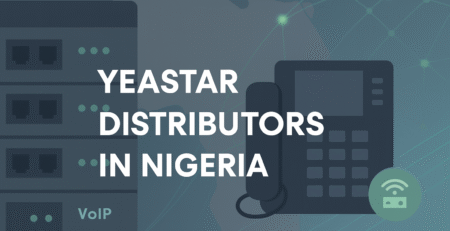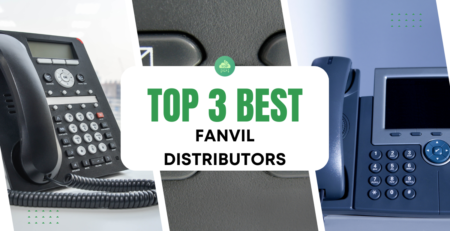The Best Small Business Phone Systems in Nigeria
Are you a small business owner in Nigeria looking for the best IP phone system to enhance your communication capabilities? Look no further! In this article, we will guide you through the top small business phone systems available in Nigeria.
Effective communication is essential for any business, regardless of its size. Investing in a reliable phone system can streamline your communication processes and reduce costs. But with so many options on the market, how do you choose the right one for your business?
Why Businesses in Nigeria Need Reliable Phone Systems
IP phone systems, also known as VoIP (Voice over Internet Protocol), offer several benefits that can significantly enhance communication for small businesses. One of the most compelling benefits is cost savings.
Traditional phone systems often come with hefty installation and maintenance fees, along with high long-distance call charges. In contrast, IP phone systems leverage the internet for communication, which can drastically reduce both local and international call costs.
Another notable benefit of IP phone systems is their flexibility and scalability. As your business grows, so too will your communication needs. Traditional systems can be challenging to expand, often requiring new hardware installations and complex configurations. Conversely, IP phone systems are inherently more adaptable. Adding new lines or features can be done with a few clicks.
Moreover, IP phone systems come packed with advanced features that enhance productivity and improve customer service. Features such as call forwarding, voicemail-to-email, video conferencing, and mobile integration are typically included or available as add-ons.
Top IP Phone Systems for Small Businesses in Nigeria
| Feature | Grandstream | Yeastar | Xorcom | 3CX | RingCentral |
| Auto Attendant | ✓ | ✓ | ✓ | ✓ | ✓ |
| Call Recording | ✓ | ✓ | ✓ | ✓ | ✓ |
| Video Conferencing | Up to 75 participants | Up to 50 participants | Via integration | Up to 100 participants | Up to 200 participants |
| Mobile App | ✓ | ✓ | Limited | ✓ | ✓ |
| CRM Integration | Limited | Good | Limited | Excellent | Excellent |
| Call Center Features | Basic included | Advanced (paid) | Basic included | Advanced (paid) | Advanced included |
| API Access | Limited | ✓ | Limited | ✓ | ✓ |
| Multi-Site Support | ✓ | ✓ | ✓ | ✓ | ✓ |
1. Grandstream UCM Series: Enterprise-Grade PBX for SMBs
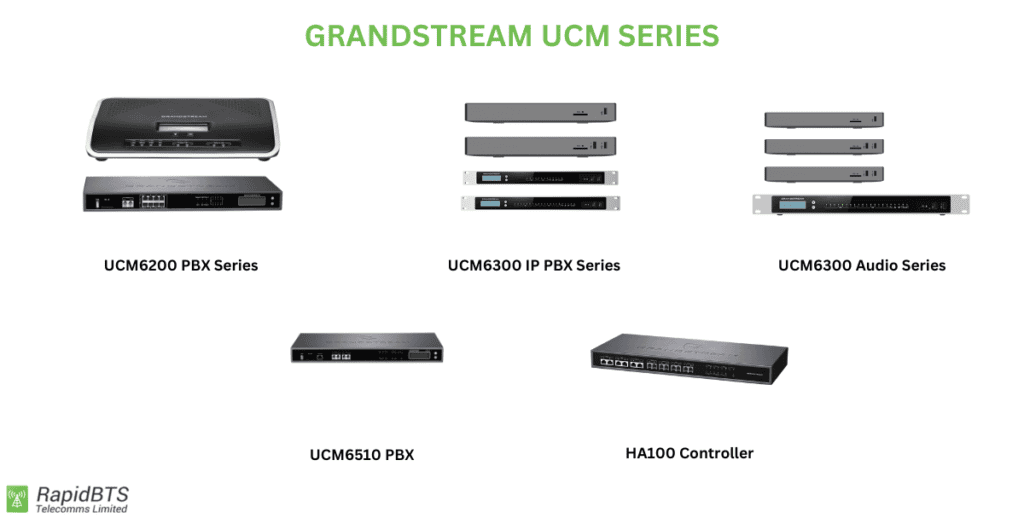
The Grandstream UCM series represents a powerful on-premises PBX solution designed specifically for small to medium-sized businesses seeking enterprise-level features without the associated costs.
Key Features:
- Built-in video conferencing with up to 75 participants
- Auto-provisioning for IP phones and endpoints
- Integrated call center capabilities
- Advanced IVR and call routing
- CRM integration capabilities
- Built-in call recording and monitoring
- Emergency call functionality
- Mobile app support for remote workers
Pros:
- Zero licensing fees for basic features, reducing long-term costs
- Excellent voice quality with support for wide-band codecs
- Robust backup and failover capabilities
- Simple web-based management interface
- Compatible with most SIP phones and endpoints
Cons:
- Requires initial hardware investment
- Needs stable power supply or UPS backup
- May require technical expertise for advanced configurations
- Limited scalability compared to cloud solutions
2.Yeastar P-Series: Hybrid Communications System
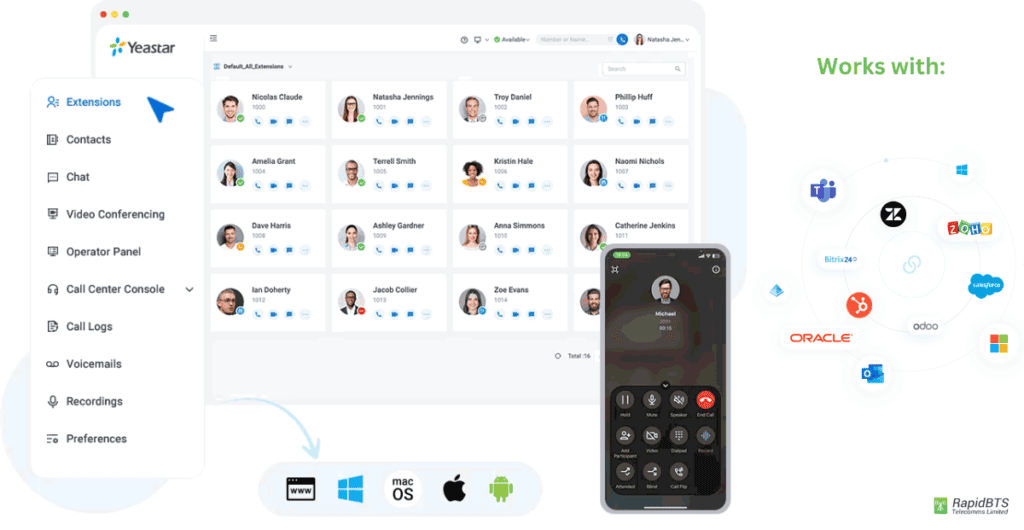
Yeastar’s P-Series offers a versatile hybrid PBX solution that bridges traditional telephony with modern IP communications, making it particularly suitable for businesses transitioning to VoIP.
Key Features:
- Support for both IP and analog connections
- Built-in hotel management features
- Advanced call center functionalities
- Linkus mobile client for remote work
- Detailed call reporting and analytics
- Video conferencing integration
- Automated attendant features
- Hot-desking support
Pros:
- Flexible deployment options (on-premises or cloud)
- Excellent compatibility with existing infrastructure
- Comprehensive unified communications features
- Easy-to-use management interface
- Regular software updates and security patches
- Good value for feature set
Cons:
- Annual subscription required for some advanced features
- Higher initial cost compared to pure cloud solutions
- Limited third-party integrations
- Requires dedicated IT resources for maintenance
3. Xorcom Complete PBX: Built for Reliability
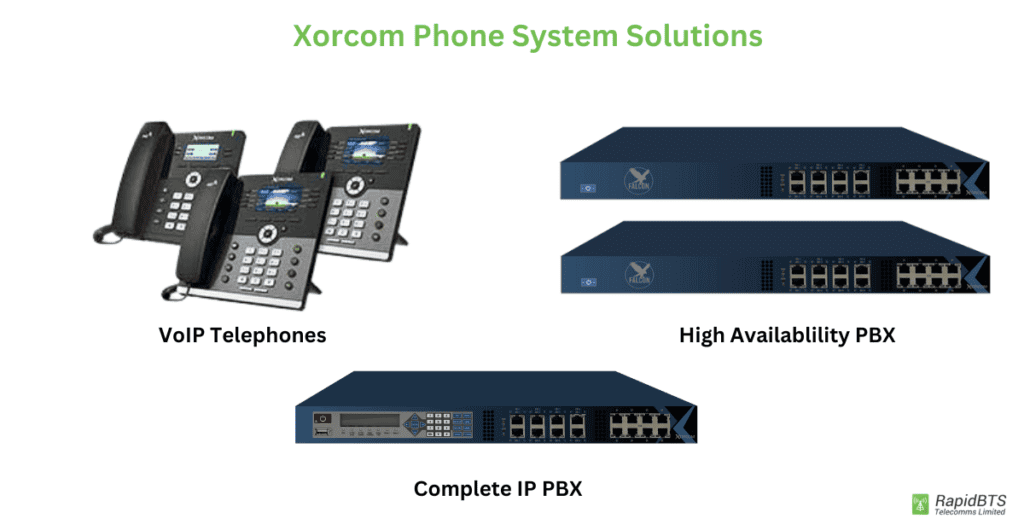
Xorcom’s Complete PBX system stands out for its robust hardware design and reliability features, making it particularly suitable for Nigerian businesses dealing with challenging infrastructure conditions.
Key Features:
- Integrated surge protection
- Support for multiple trunk types
- Advanced call routing capabilities
- Built-in conference bridge
- Detailed call logging and monitoring
- Emergency notification system
- Automated backup system
- Multi-site networking capabilities
Pros:
- Exceptional durability in unstable power conditions
- Comprehensive hardware warranty
- Superior voice quality
- Minimal maintenance requirements
- Strong security features
- Good scalability options
Cons:
- Higher upfront costs
- Limited cloud integration options
- More complex setup process
- Fewer modern collaboration features
4. 3CX: Cloud-Based Flexibility
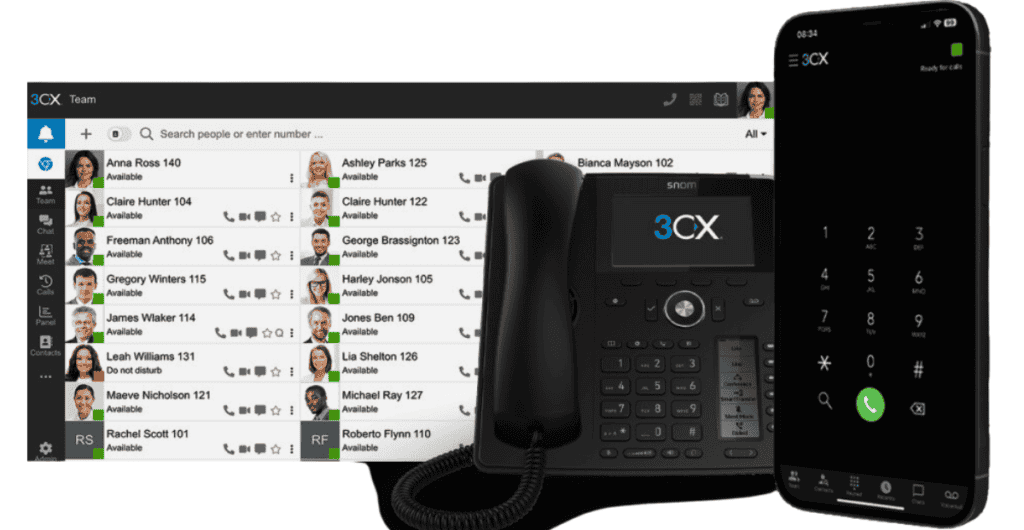
3CX offers a modern cloud PBX solution that’s gaining popularity in Nigeria due to its flexibility and cost-effective pricing model.
Key Features:
- Web-based video conferencing
- Mobile apps for iOS and Android
- Live chat and messaging capabilities
- Call center features
- Advanced queue management
- Integration with popular CRM systems
- Detailed analytics and reporting
- Custom IVR capabilities
Pros:
- Low initial investment
- Regular automatic updates
- Excellent mobile integration
- Works well with Nigerian internet infrastructure
- Easy to scale up or down
- User-friendly interface
Cons:
- Requires stable internet connection
- Monthly subscription costs
- Limited hardware integration options
- Dependency on cloud services
5. RingCentral: Enterprise Communications Suite
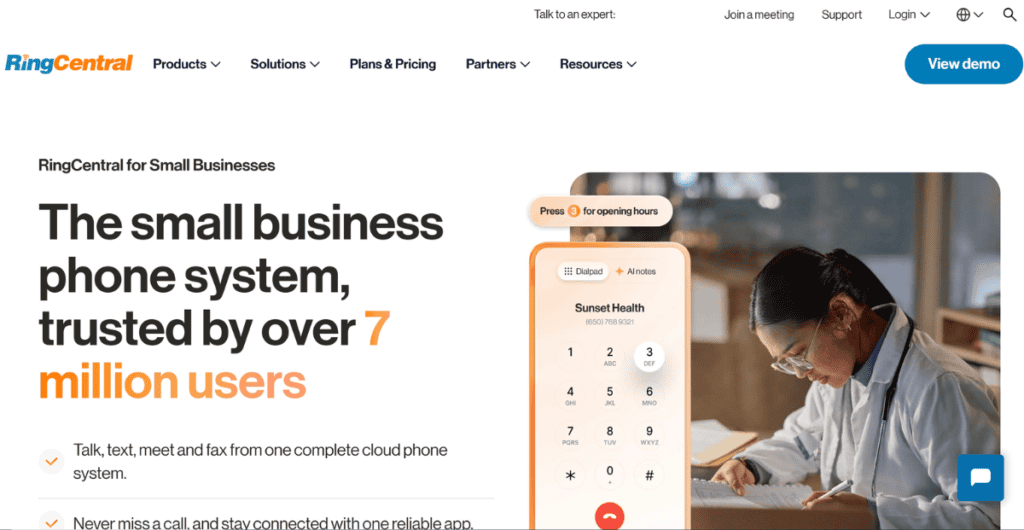
RingCentral provides a comprehensive unified communications platform that’s particularly suitable for businesses requiring advanced features and international calling capabilities.
Key Features:
- Unified communications platform
- Advanced video conferencing
- Team messaging and collaboration
- Multi-level IVR system
- Advanced call handling
- Extensive integration options
- Global calling capabilities
- Comprehensive analytics
Pros:
- Feature-rich platform
- Excellent uptime reliability
- Strong mobile support
- Regular feature updates
- Comprehensive security measures
- 24/7 customer support
Cons:
- Higher monthly costs
- Can be complex for small businesses
- Requires good internet connectivity
- Some features may be unnecessary for smaller operations
Features to consider when choosing a phone system
Choosing the right phone system requires careful consideration of several key features that align with your business needs. One of the foremost features to evaluate is call quality. While most phone systems provide decent call clarity, the reliability of the internet connection can significantly affect this. Look for systems that utilize advanced technologies for call management and ensure that they have a good track record for call quality.
Another critical feature is integration capabilities. An IP phone system that integrates seamlessly with tools such as CRM and project management softwares can streamline communication. Also, systems that offer APIs and third-party integrations allow businesses to customize their communication solutions.
Lastly, consider the scalability and flexibility of the business phone system. As your business grows, so will your communication needs. An ideal system should allow you to easily add or remove lines and features without significant disruption or cost.
Tips for maximizing the use of your Business phone system
To fully leverage the capabilities of your phone system, it’s crucial to adopt certain best practices. First and foremost, ensure that your team is well-trained in utilizing all features available. Organize training sessions to familiarize employees with call forwarding, conference calling, and any integrated applications.
Another way to maximize your business phone system is to regularly review call analytics and performance metrics. Many systems offer built-in analytics that can provide insights into call volume, duration, and even peak call times. For instance, if you notice a high volume of missed calls during specific hours, you may need to adjust staffing or implement a call management strategy to ensure that customer inquiries are addressed promptly.
Lastly, consider integrating your phone system with other business tools to enhance workflow. Many modern systems offer integrations with CRM platforms, project management tools, and email applications. For instance, integrating your IP phone with a CRM can allow for automatic logging of calls, making it easier to track customer interactions and follow up effectively.
We understand that choosing the right business phone system is a significant decision. After extensively testing and implementing various solutions across Nigeria, we’ve found that the best choice often depends on your unique business circumstances, infrastructure, and growth plans.
Need expert guidance on choosing the right phone system for your business? RapidBTS specializes in business phone system solutions, with nationwide installation and support. Contact us at +2347000700111 for a free consultation and personalized quote.

